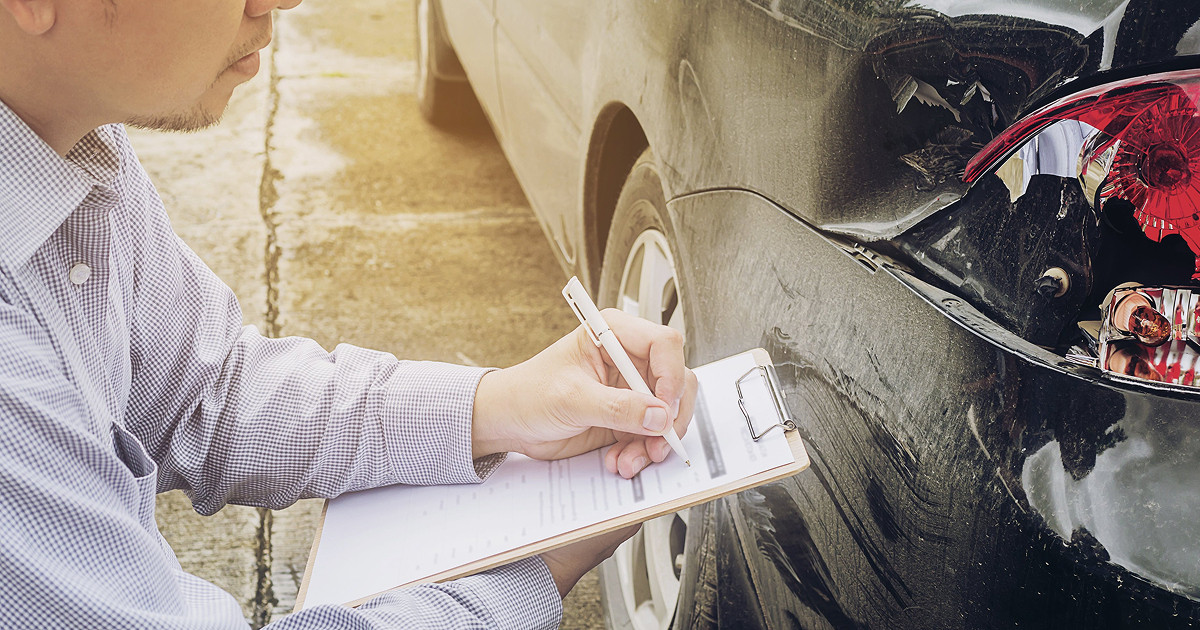Yes, health insurance covers car accident injuries; however, it is typically the secondary form of insurance coverage after a car crash. In most states, including Kentucky, auto insurance coverage pays for medical care for accident injuries until the available policy limits are exhausted.
In Kentucky, most vehicle owners have opted into the state’s choice no-fault insurance, which provides personal injury protection (PIP) coverage in the event of an accident. PIP coverage is often the first line of payment for car accident injuries. Here’s a look at how health insurance may cover accident injuries once PIP or similar auto insurance coverages are exhausted.
When Does Health Insurance Pay for Auto Accident Injuries?
Health insurance is often used as secondary coverage when you’re injured in a car accident. It will only pay for medical treatment once other types of available insurance have been exhausted. The primary insurance coverage, or first applied coverage, is either your own auto insurance policy or the auto insurance policy of the driver who caused the accident.
All states, excluding Virginia and New Hampshire, require drivers to possess an auto insurance policy, which will pay for auto accident injuries first, up to the policy limits. Once your medical bills exceed the auto insurance coverage limits, your health insurance policy will kick in to cover the remainder of your medical expenses.
Kentucky is a choice no-fault state, which means that drivers in Kentucky are required to carry Personal Injury Protection (PIP) coverage on their auto policy by default. Most Kentucky accident victims will use PIP insurance as their primary coverage before health insurance is applied. States like Maine require drivers to carry similar medical payments coverage (MedPay), which is considered primary coverage and will pay for accident injuries before health insurance.
In states like New Jersey, drivers have the option to select their health insurance policy as their primary coverage for auto accident injuries. In these states, health insurance will cover your medical bills first, and PIP coverage will only apply if your medical expenses exceed your health plan limits. In Michigan, drivers can coordinate health and auto insurance policies such that health insurance pays for hospital and doctor bills, and PIP coverage pays for lost wages.
Understand What Your Insurance Plan Covers
Auto insurance is mandatory to register a vehicle in most states. However, it can be difficult to understand auto insurance coverage requirements and how your applicable auto insurance coverage can pay for your accident injuries. In Kentucky, the primary coverages to look for are auto liability coverage (property damage and bodily injury) and personal injury protection.
- Property damage liability coverage applies to damage you cause to another driver’s property or vehicle during an accident. Minimum coverage in Kentucky is $10,000 per accident.
- Bodily injury liability coverage applies to bodily harm you inflict on another driver during an accident. Minimum coverage in Kentucky is $25,000 per person/$50,000 per accident.
- Personal injury protection applies to personal injuries sustained during an accident, no matter who was at fault. Minimum coverage in Kentucky is $10,000 per accident.
PIP coverage will pay for up to $10,000 of medical treatment expenses per person and up to 85% of a person’s weekly lost wages, not to exceed $200 per week. While this is helpful after a crash, $10,000 does not go very far if you have suffered severe auto accident injuries. This is where the specifics of your health insurance policy come into play, though the state does not mandate specific coverages.
Types of medical coverages applicable under your health insurance policy may include:
- Hospitalization
- Prescription drugs
- Rehabilitative services and devices
- Laboratory services (diagnostic tests)
- Emergency services (ambulance services)
- Ambulatory medical services (outpatient care)
- Mental health (counseling and psychotherapy)
What Happens if You’re Injured but Don’t Have Health Insurance?
Do not allow the fear of medical costs to prevent you from seeking treatment for accident injuries, even if you do not have health insurance. First, check your auto insurance policy for PIP or MedPay coverage—if you’re in Kentucky or one of these states, you should have it unless you’ve rejected it. This coverage will pay for medical costs up until your policy limits.
If you have neither of these coverages, you’re likely in an at-fault state. This means you can file your medical costs with your auto insurance company, and it will seek compensation from the at-fault party. The other option is to file a claim with the at-fault party’s insurance company directly. While this may not pay for medical bills instantly, it will provide reimbursement to cover those costs.
Once your PIP or MedPay coverage runs out—or while you await reimbursement from the at-fault party—you can receive injury treatment under a medical lien. Under a lien, a health care provider will render treatment without payment with the understanding they will be reimbursed when you receive an auto accident settlement. If a lien is not possible, discuss payment plans with your provider.
Does Car Insurance or Health Insurance Pay for Injuries First?
Car insurance pays for auto accident injuries first. Which car insurance policy pays first, either the accident victim or the at-fault driver, depends on whether the accident occurred in an at-fault or no-fault state. In at-fault states like Colorado or Georgia, injury treatment is first paid by the at-fault driver’s insurance policy. In no-fault states like Kentucky and Florida, medical expenses are paid by the victim’s PIP or MedPay insurance first, regardless of which driver was at fault.
If you’ve been injured in a car crash in a no-fault state, you’ll be required to fill out a PIP or MedPay application sent to you by your auto insurance company. This process will automatically direct payment to your medical providers until you’ve reached your coverage limits (typically $10,000). Once these coverages are exhausted, your medical bills are sent to your secondary provider, which is likely your health insurance company.
You will be responsible for your typical deductible and copay throughout treatment, but your health insurance company can forward the remainder of your medical bills directly to the at-fault driver’s auto insurance company for reimbursement. Similarly, you may be able to file a personal injury claim to seek reimbursement for your medical costs, which providers can recoup via a medical lien. Take a look at how exactly medical bills come out of your settlement here.
Recovering Expenses from At-Fault Drivers
You can recover expenses like accident-related medical bills and lost wages from at-fault drivers. If you are not in a fault state, where your claim for compensation can be sent directly to the at-fault driver’s auto insurance company, it’s best to speak with a personal injury attorney to discuss your options. In Kentucky, a choice no-fault state, you may file a lawsuit against the at-fault driver if your case meets a certain threshold.
Under Kentucky auto accident laws, the accident must have caused more than $1,000 in medical expenses or caused a bone fracture or permanent injury, disfigurement, or loss of function to file a lawsuit. A lawsuit can help recoup expenses or losses such as:
- Medical bills, including ongoing and future treatment costs
- Home care costs, including rehabilitative equipment
- Pain and suffering, including mental anguish
- Lost wages, including lost earning capacity
- Property damage, including a totaled vehicle
- Permanent disfigurement or impairment
What if Insurance Won’t Pay for Your Injuries?
There are various reasons why different insurance companies may not pay for your injuries. Some health insurance policies have “auto accident exclusion” clauses that deny coverage for injuries caused by a motor vehicle accident. In some cases, certain medical services, such as physical therapy or chiropractic care, may not be included under your current health plan.
Other cases of claims denial may stem from an uninsured driver. Uninsured motorists are individuals who do not carry auto insurance, so there is no insurance policy to claim against. Sometimes, the at-fault driver may be an underinsured motorist and cannot afford to pay for a severe injury. While they may have some coverage, total compensation may be denied.
In situations where the insurance company will not pay for your auto accident injuries, it’s imperative to reach out to a knowledgeable car accident attorney. An attorney can help you navigate the ins and outs of various insurance policies, negotiate with an insurance adjuster on your behalf, and file a lawsuit to properly reimburse you for your injuries.
Get Help From an Experienced Car Accident Attorney
Accident injury victims do not deserve to play phone tag with insurance companies to learn whether or not their injuries will be compensated. Any injured person with or without health insurance coverage should be able to pay for their medical bills. At David Bryant Law, we stand by these sentiments—and we make it our mission to fight for your right to compensation after a crash.
If you or someone you love has been injured in a car accident, now is the time to contact an attorney for advice. We provide a complimentary case evaluation to review the facts of your case and determine if you have a viable accident claim. Contact David Bryant Law today to learn more.





